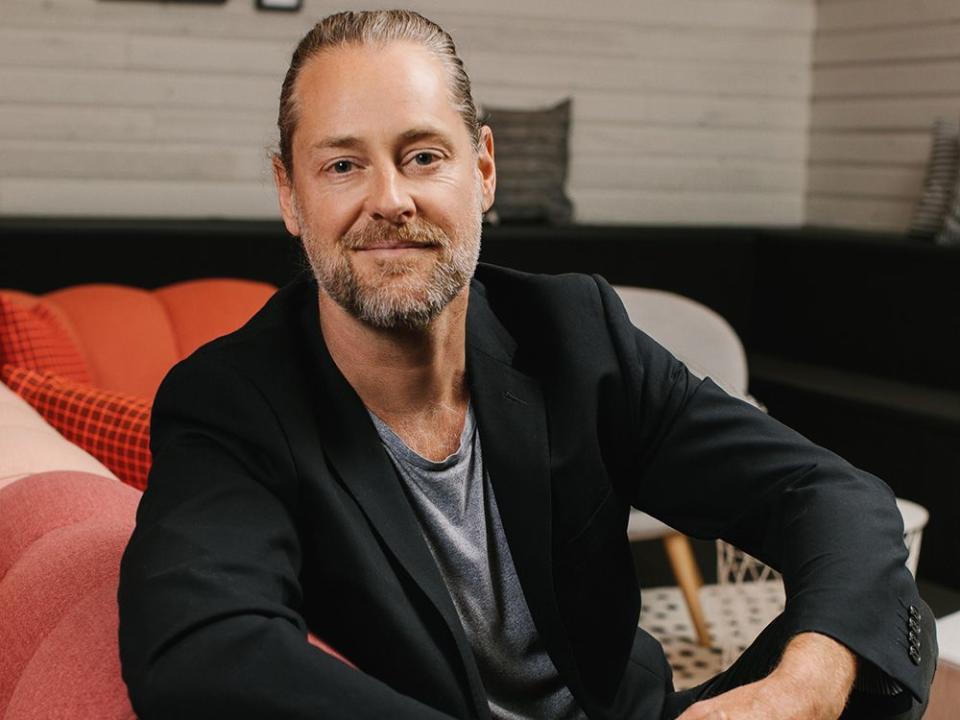Ryan Holmes on what a summer job scrubbing pots taught him about being a boss

At just 16 years old, Ryan Holmes was already an entrepreneur running his own business…on the weekends, at least. By day, the B.C.-born, future founder of Hootsuite Inc. and bestselling author of The 4 Billion Dollar Tweet had a low-level, minimum-wage gig familiar to so many young people: washing dishes. In First Hand’s summer jobs series this week, Holmes reveals what scrubbing pots taught him about being a boss. As told to Rosemary Counter.
The summer I was 16, I actually had this funny combo of best and worst job. I had started a successful paintball business, so that was the best one, but since you needed a big group to play and it was only really busy on weekends, I had lots of time during the week to kill. So I also got a job washing dishes.
I’d taken the shotgun approach and left my resume all over town and this local restaurant in Vernon, B.C., happened to be the one who called me back. This was the first time someone else gave me a job, which was kind of thrilling at the time, and the first time I was getting a cheque for my bank account. This will date me, but I only made like $4.50 an hour, or whatever minimum wage was at the time. But it was nice to have, and a few hundred dollars when you’re 16 felt like good money, and it helped me pay off the startups for the paintball business.
The restaurant was a steakhouse, basically, that served breakfast too. I would work either early mornings or later in the evenings, for the breakfast or dinner rush, but neither shift was super long. I’d be either busy at night or had to wake up early the next morning, so the job kept me out of trouble too. At least I could wear what I wanted, which was usually jeans and a T-shirt. They’d give you gloves and an apron.
As you can imagine, it wasn’t the most glamorous work. You’d start by filling up the bus bins with dirty dishes and lugging them back to the dish pit. There was that big industrial, high-pressure hose that hung down from the ceiling. You’d rinse with that first, fit everything you could into the machine, wash and repeat. It was kinda gross at first, old food in a hot kitchen and all, but you get immune to it pretty fast. And it actually smelled pretty good, because you could only ever smell cleaning detergent back there.
It wasn’t hard, but it was repetitive. The hardest part for me was the boredom, but boredom was good, because I realized I was just trading time for money. I was doing this at my own business job too, but it was more money, and much more exciting and exhilarating. It really confirmed to me that I was on the right track, that entrepreneurism and self-employment was the path for me.
Laurentian Bank CEO Rania Llewellyn on her summer slinging double-doubles at Tim Hortons
TIFF's Robyn Citizen on her summer bartering corn dogs at a flea market
Wes Hall's stint as a 'chicken grim reaper' taught him one valuable lesson
How Robert Herjavec's summer stacking boxes shaped his future in business
Even though I got to be the boss on the weekends, I was still just one part of the team. It was always fun to watch the whole team of workers — chefs, cooks, managers, servers — all come together to make dinner happen. It was a fun, eclectic crew of people who, even though everybody was different and nobody was making much money, were happy to be there and working well together. By then I was hiring employees for my paintball business, so I was paying attention.
I took a lot of management lessons from the owner, who I remember as particularly great. Even though I was just a dishwasher, he always made just a little bit of time for me. He’d come over, look at the done dishes, and even though it was a menial job, he’d say, “Great work today.” Sometimes he’d compliment my work ethic and tell me I’d go far. I never forgot the feeling and the impact it made for your boss to recognize your work.
On the hottest days, he’d send me out to get a box of popsicles for the kitchen staff who were just dying of heat back there. This is a hot kitchen already, but it was scorching in the summer in the Okanagan. I saw the goodwill that box of popsicles bought. It was such a small thing, but also a big thing to let everyone know you appreciate them. Even 30 years later, I still remember the popsicles. This is the kind of boss that I try to be.
_____________________________________________________________
For more stories about the future of work, sign up for the FP Work newsletter.
______________________________________________________________

 Yahoo Finance
Yahoo Finance 